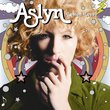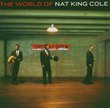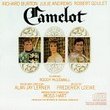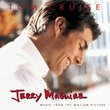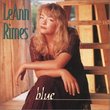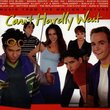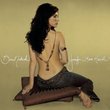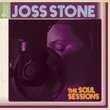| All Artists: Al Jolson Title: Let Me Sing And I'm Happy: Al Jolson At Warner Bros. 1926-1936 - Motion Picture Soundtrack Anthology Members Wishing: 1 Total Copies: 0 Label: Rhino / Wea Original Release Date: 11/19/1996 Release Date: 11/19/1996 Album Type: Soundtrack Genres: Folk, Special Interest, Pop, Soundtracks, Broadway & Vocalists Styles: Traditional Folk, Comedy & Spoken Word, Nostalgia, Oldies, Vocal Pop, Traditional Vocal Pop Number of Discs: 1 SwapaCD Credits: 1 UPCs: 081227254421, 081227254469 |
Search - Al Jolson :: Let Me Sing And I'm Happy: Al Jolson At Warner Bros. 1926-1936 - Motion Picture Soundtrack Anthology
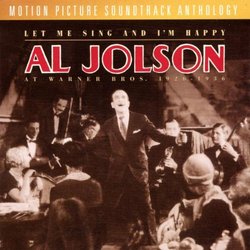 | Al Jolson Let Me Sing And I'm Happy: Al Jolson At Warner Bros. 1926-1936 - Motion Picture Soundtrack Anthology Genres: Folk, Special Interest, Pop, Soundtracks, Broadway & Vocalists
|
Larger Image |
CD DetailsSimilarly Requested CDs
|
CD ReviewsContains two never before released songs! brooks@lgc.edu | LaGrange, Georgia | 09/08/1998 (5 out of 5 stars) "This album includes almost all the songs from the Warner Bros soundtracks by Jolson, and excellent liner notes. The greatest thing about this CD ( which is well engineered ) is the inclusion of two recently discovered cuts from the Vitaphone short A PLANTATION ACT which Jolson filmed in 1926 - a year before THE JAZZ SINGER was produced." Musically and historically significant... ewomack | MN USA | 04/30/2005 (4 out of 5 stars) "Al Jolson helped define American celebrity. The hammy, boastful, overconfident, in your face entertainer proclaimed himself "The World's Greatest Entertainer". This wasn't mere braggadocio. Jolson was widely known and highly praised in the 1920s and 1930s. His name became somewhat synonymous with stardom. For some modern listeners, Jolson may come across as overbearing, melodramatic, or sappy. More of a steamroller than a performer. Times do change, for better or worse, but in the era before electronic amplification, performers often had to project, amplify their emotions, and even overact so that all in the house could interpret their histrionics. The stil relevant analogy of movie acting versus theater acting helps make this clearer. Jolson came from the era of theater and vaudeville where ham and melodrama packed audiences into theaters in nearly every town. Also, early recording technology required singers to project like a locomotive. Usually they sang into a huge horn with the band in the background. This horn was the sole microphone for the entire ensemble. One of Jolson's attractions was his rise from poverty to stardom. His father was a rabbi, and his mother died when he was nine. At a relatively early age he literally ran away to join the theater. He made his name on the minstrel show circuit performing in blackface. This historical fact hasn't helped his reputation through the decades after his death in 1950. Then Jolson, already legendary as a stage performer, reached an even wider audience with film. He's most widely know today for 1927's "The Jazz Singer", the first widely released picture with sound (though only the musical numbers really had sound; played from a record which had to be painstakingly synchronized; most of the film played like a silent movie). Jolson's greatest screen triumph was "The Singing Fool" which remained the highest grossing movie until "Gone With The Wind". Jolson's popularity declined in the 1930s (the movies apparently began to repeat themselves) and never quite picked up again. Though he continued to give concerts well into the 1940s. This CD captures the best of the music from Jolson's movies. All the music from "The Jazz Singer" (except the cantor and the young Jackie in the club) is included here, along with music from "The Singing Fool", "Say it With Songs", "Mammy", "Big Boy", "Go Into Your Dance", and "The Singing Kid". There's an interesting story behind one of the biggest hits of the 1930s, "Sonny Boy". A songwriting team set out to intentionally make the most clichéd song they could think of as a joke. The result was "Sonny Boy". Someone heard it, loved it, and passed it on to Jolson, who also loved it. It became a huge seller (back then sales were gauged by sheet music, not by records). The version from the movie, included here, showcases Jolson at his most dramatic (some may say melodramatic). The song had audiences in tears at the time. The songwriters themselves probably didn't know whether to laugh or cry. The sound quality of the CD reflects its era. It sounds like recordings from the 1920s and 1930s. Recording technology still struggled to capture a wide range of frequencies then. Considering this, the CD still maintains listenability throughout. The sound obviously lends the music a degree of historical interest as well. This CD probably represents the best introduction to the music of Al Jolson. Though he recorded much more material of higher sound quality, the music here resulted in the majority of his mass popularity. Not only that, the music here is a lot of fun to listen to and showcases Jolson's style in the context of his films. Listen to it and get to know one of the major celebrities of the 20th century." A Must-Hear For Fans & Historians ewomack | 01/01/2001 (5 out of 5 stars) "The now-controversial master showman is captured in his prime on this amazing disc. Although some prefer the Decca years Jolie (1945 to 1950), these '26 to '36 movie cuts gather more luster with every audition. There are even two pre-JAZZ SINGER numbers, meticulously restored from sound-on-disc: "Rock A Bye.." and "April Showers". There are the historic selections from that '27 movie landmark, including the haunting "Mother Of Mine, I Still Have You". Those who decry Jolson as a shameless imitator should hear this magnificent cantorial effort. The entire package is awesome!"
|

 Track Listings (23) - Disc #1
Track Listings (23) - Disc #1
